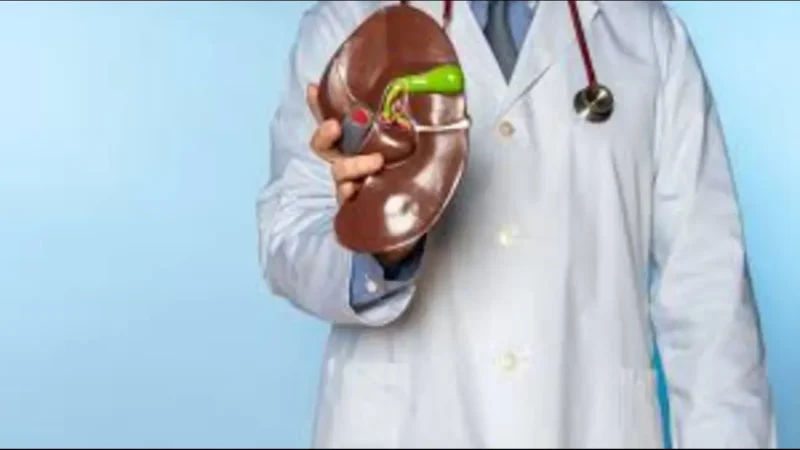Introduction
Gallbladder cancer is a rare but serious disease that develops when cancerous (malignant) cells form in the tissues of the gallbladder a small organ located just beneath the liver. Although the condition is uncommon, it often goes undetected until the later stages because early symptoms are usually mild or easily confused with other digestive problems.
At Liver Care Center, Lahore, our hepatologists and liver specialists are experienced in diagnosing and treating gallbladder and other hepatobiliary cancers with precision and care.
What Is the Gallbladder and What Does It Do?
The gallbladder is a small, pear-shaped organ that stores bile a digestive fluid produced by the liver. Bile helps break down fats during digestion. When cancer cells develop in this organ, they can block bile flow, leading to pain, jaundice, and digestive issues.
Common Causes and Risk Factors
The exact cause of gallbladder cancer is not always known, but certain factors may increase your risk:
-
Gallstones – The most common cause; long-term gallstones can irritate and inflame the gallbladder wall.
-
Chronic Inflammation – Long-standing infection or irritation of the gallbladder.
-
Polyps in the Gallbladder – Small growths that can become cancerous over time.
-
Family History – Genetic factors may increase the risk.
-
Obesity and Poor Diet – High-fat diets may contribute to bile changes and gallbladder inflammation.
-
Female Gender – Women are more likely to develop gallbladder cancer than men.
Symptoms to Watch For
In the early stages, gallbladder cancer rarely causes clear symptoms. However, as the disease progresses, you may experience:
-
Persistent abdominal pain (especially in the upper right side)
-
Jaundice (yellowing of skin or eyes)
-
Nausea or vomiting
-
Loss of appetite
-
Unexplained weight loss
-
Fever or discomfort after eating fatty foods
If you experience these signs, it’s important to consult a liver and gallbladder specialist in Lahore immediately for evaluation.
Diagnosis
At Liver Care Center, our experts use advanced diagnostic tools to detect gallbladder cancer accurately. These may include:
-
Ultrasound and CT Scan
-
MRI or MRCP (Magnetic Resonance Cholangiopancreatography)
-
Endoscopic Ultrasound (EUS)
-
Biopsy to confirm cancer type and stage
Treatment Options
The treatment plan depends on the cancer’s stage and overall health of the patient. Common treatment approaches include:
-
Surgery (Cholecystectomy) – Removal of the gallbladder and nearby tissues if detected early.
-
Chemotherapy or Radiation Therapy – Used to shrink or destroy remaining cancer cells.
-
Targeted or Immunotherapy – Advanced therapies that help fight specific cancer cells.
-
Palliative Care – For managing symptoms and improving quality of life in advanced stages.
Our hepatologists and liver cancer specialists in Lahore provide a personalized treatment approach for every patient, focusing on both medical excellence and emotional care.
Prevention Tips
While not all cases are preventable, certain habits can lower the risk:
-
Maintain a healthy weight
-
Eat a balanced diet rich in fruits, vegetables, and fiber
-
Treat gallstones early
-
Avoid high-fat and fried foods
-
Get regular liver and gallbladder checkups, especially if you have a family history
When to See a Specialist
If you notice persistent abdominal pain, jaundice, or unexplained weight loss, don’t delay medical attention. Early diagnosis significantly improves outcomes.
At Liver Care Center, our liver specialists and hepatologists in Lahore offer expert consultation, accurate diagnosis, and advanced gallbladder cancer treatment options.
Conclusion
Gallbladder cancer may be rare, but awareness and timely action can save lives. Whether you’re dealing with gallstones, chronic gallbladder inflammation, or early warning signs, professional guidance is essential.
Visit www.livercarecenter.com to schedule an appointment with our expert hepatology team and take the first step toward better liver and gallbladder health.







